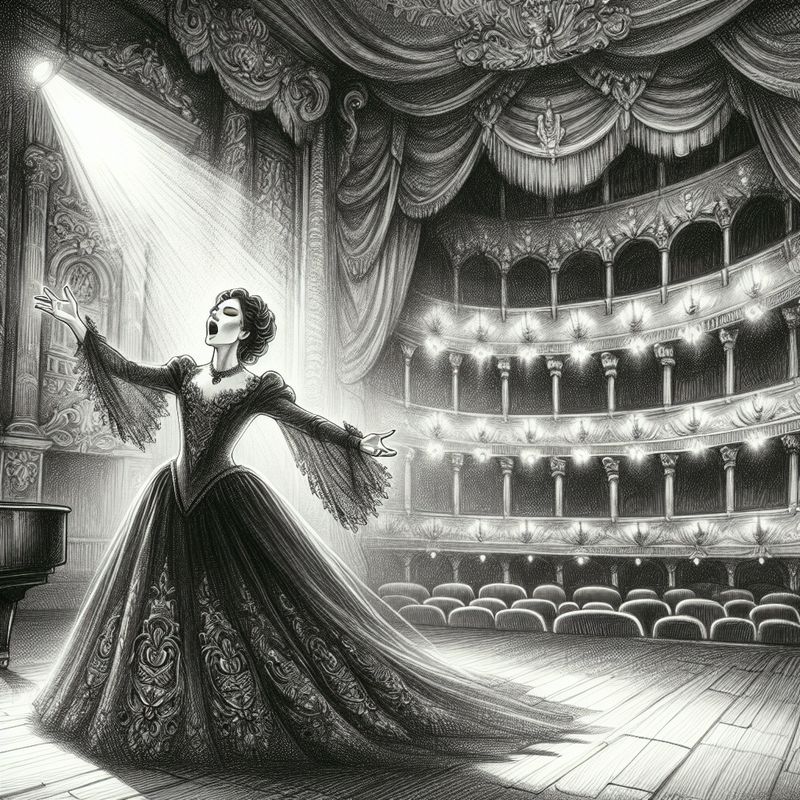
The Opera Singer's visa


Nick Nason is a solicitor at Edgewater Legal who regularly provides advice to clients applying under the Global Talent immigration route. Here Nick outlines how opera singers might qualify.
If you have been recognised as an exceptionally talented opera singer, or one who demonstrates exceptional promise, you may be eligible to apply for a UK visa.
To be eligible, you must have a professional history of delivering exceptional opera performances in a minimum of two countries over the past five years. Alternatively, if you're in the early stages of your career, demonstrating a promising trajectory in one country may suffice.
It may also be possible to pursue the visa if you play a role in the production and presentation of opera, such as programmers/promoters, directors, or producers.
Outline
The Global Talent visa allows individuals to reside and work in the UK for a period of up to 5 years, with the flexibility to choose the duration. Moreover, it serves as a pathway towards Indefinite Leave to Remain, followed by British citizenship thereafter if the criteria for naturalisation are met.
To commence the visa application process, endorsement by Arts Council England is a prerequisite. This involves completing an online form provided by UK Visas and Immigration and furnishing supporting documentation demonstrating compliance with the stipulated criteria (see below).
Once endorsed by Arts Council England, applicants can proceed with the visa application.
Individuals endorsed through the Exceptional Talent pathway may qualify for accelerated settlement after 3 years. Conversely, those deemed to possess exceptional promise in the early stages of their career typically become eligible after 5 years.
The visa criteria
To demonstrate your eligibility, you'll need to provide three dated letters of recommendation.
Among these, two should originate from esteemed organisations within the opera sphere, recognised as authorities in the field, with at least one being UK-based. The third letter must also come from a prominent opera institution or an individual with substantial experience in the area.
Unless you're in the early stages of your career, you must also satisfy two of the following three criteria:
- Two or more examples significant media recognition (individually or contribution to a group) from at least two countries
- Winning, or significantly contributing to winning, at least one international award for excellence
- Proof of professional performances considered internationally significant within operatic circles
If you are in the early stages of your career, the standards are slightly less stringent, yet you still need to demonstrate that you meet two of the following requirements:
- Two examples of recent media recognition for your work as an individual, or as a named member of a group or as a contributor
- Winning, or significantly contributing to winning, or significantly contributing to being nominated or shortlisted for, or being nominated or shortlisted for, at least one international award for excellence
- Professional performances recognised within opera
A CV will also need to provided outlining your career to date.
What is ‘significant media recognition’?
Evidence typically takes the form of thorough independent critiques, reviews, or critical evaluations of your individual work, authored by reputable arts and culture critics from internationally recognised and established media outlets in at least two countries.
Acceptable sources may include newspapers, magazines, television, radio, or reputable websites. For applicants under the Exceptional Talent category (i.e., not in the early stages of their careers), evidence from blogs and social media is not considered acceptable.
However, for those applying under the Exceptional Promise category, blogs may be accepted provided they are authored by credible arts and culture critics, are prominent and sufficiently established, and have a substantial number of reviews. The media recognition should pertain to work undertaken within the five years preceding the application and must correspond to the time of the article's publication.
For further clarity on what constitutes 'significant media recognition,' applicants are advised to consult the guidance provided by Arts Council England before submitting their applications.
What qualifies as an international award?
The award should offer substantial recognition of your standing as a leader (or emerging leader) in the realm of opera. It must have been conferred within the past five years and there is no predefined list of eligible awards.
If you haven't personally received an award (or nomination), you may provide evidence of a significant contribution to an award win or nomination achieved by another individual or group with whom you collaborated. In such cases, you must include a supporting document from the recipient of the award (or nomination) or from a senior figure within the winning group. This document should outline the significant role you played in the project that led to the award.
What constitutes proof of performances?
You can submit programs, advertisements, posters, or listings from previous events in which you participated as evidence. Additionally, you may include videos or photographs, but these must be accompanied by supporting information that confirms your involvement, as well as the date and location of the engagement. Notably, videos or photographs alone will not suffice according to the provided guidelines.
For additional details regarding acceptable evidence, refer to the guidance provided by Arts Council England.
If you are looking for further information or assistance regarding this visa then please do not hesitate to contact us at Edgewater Legal.